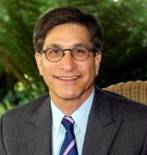Caffeine Concerns: How Much Is Too Much?
By Shahada Karim | October 7th, 2013 | Category: Fitness Couture, Health | 2 comments Most of us can’t fathom starting the day without that traditional cup of coffee or caffeinated tea. Caffeine shakes off the mental cobwebs, gives us a boost, and sets us up for a productive day.
Most of us can’t fathom starting the day without that traditional cup of coffee or caffeinated tea. Caffeine shakes off the mental cobwebs, gives us a boost, and sets us up for a productive day.
Or does it?
 Consuming too much caffeine can lead to what some doctors call a “caffeine dependence”—and some experts believe it’s no different than any other addiction to stronger substances like drugs and alcohol. We asked Behavioral Health expert Dr. David Sack about the dangers of caffeine dependence.
Consuming too much caffeine can lead to what some doctors call a “caffeine dependence”—and some experts believe it’s no different than any other addiction to stronger substances like drugs and alcohol. We asked Behavioral Health expert Dr. David Sack about the dangers of caffeine dependence.
AM: How long does it take to develop a “caffeine dependence”?
Dr. Sack: There is no set amount of caffeine that will definitively cause dependence. Different people develop a dependence on caffeine at different rates, depending on factors like age, body mass, health status, and medication use.
The best test is to stop consuming caffeine and see how you feel. If you skip your morning cup of coffee, do you get a headache or feel lethargic or irritable? These are signs of withdrawal, which can set in as little as 12 to 24 hours after the last dose of caffeine.
AM: Is there an alternate way to get the same kind of “boost” that caffeine can give us, without addictive side effects?
 Dr. Sack: People tout all kinds of caffeine alternatives, but the real question is: Are you taking care of yourself? If your basic needs are met—you eat a nutritious diet, drink plenty of water, exercise regularly, spend a few minutes in the sun, and get enough sleep—you may discover that you’re not aching for the caffeine pick-me-up. Other energy-boosters include meditation or deep breathing, taking short, frequent breaks throughout the day, and surrounding yourself with people and things that energize you like upbeat music and energetic people.
Dr. Sack: People tout all kinds of caffeine alternatives, but the real question is: Are you taking care of yourself? If your basic needs are met—you eat a nutritious diet, drink plenty of water, exercise regularly, spend a few minutes in the sun, and get enough sleep—you may discover that you’re not aching for the caffeine pick-me-up. Other energy-boosters include meditation or deep breathing, taking short, frequent breaks throughout the day, and surrounding yourself with people and things that energize you like upbeat music and energetic people.
AM: Can we safely ingest caffeine on occasion without becoming “dependent”?
Dr. Sack: Caffeine is safe in moderate amounts. In fact, there is evidence that a small amount of caffeine may have health benefits. The FDA advises consuming less than 400 milligrams per day, or about four or five cups of brewed coffee, to avoid negative effects. The National Institutes of Health recommends doses of 200 to 300 milligrams, or two to four cups of brewed coffee.
Even within prescribed limits, it’s important to check in with yourself. Are you restless, irritable, or having trouble sleeping? These may be signs that your caffeine habit is interfering with your quality of life. Some people are more sensitive to caffeine than others. For these individuals, even a small amount of caffeine (for example, a cup of coffee) can have undesired effects.
AM: Why is caffeine so popular?
 Dr. Sack: Study after study has shown that on average people are getting an hour of sleep less than they need. Chronic sleep deprivation, caused by the industrial and now digital revolutions, that enables work (and play) on a 24-hour basis contributes to this problem. We are a sleep-deprived nation trying to caffeinate our problem away rather than change our lifestyles.
Dr. Sack: Study after study has shown that on average people are getting an hour of sleep less than they need. Chronic sleep deprivation, caused by the industrial and now digital revolutions, that enables work (and play) on a 24-hour basis contributes to this problem. We are a sleep-deprived nation trying to caffeinate our problem away rather than change our lifestyles.
*David Sack, M.D. currently serves as CEO of Elements Behavioral Health, a network of addiction treatment programs that includes Promises Treatment Centers in Malibu and Los Angeles, The Ranch outside Nashville, The Recovery Place in Fort Lauderdale, Florida, and The Sexual Recovery Institute in Beverly Hills.









Yup…I definitely get headaches if I don’t have coffee before noon. Yikes! Maybe I should start considering an alternative…(maybe! haha..)
[…] “Caffeine Concerns: How Much is Too Much?” Dr. Sack discusses how consuming too much caffeine can lead to caffeine dependence. Dr. Sack […]